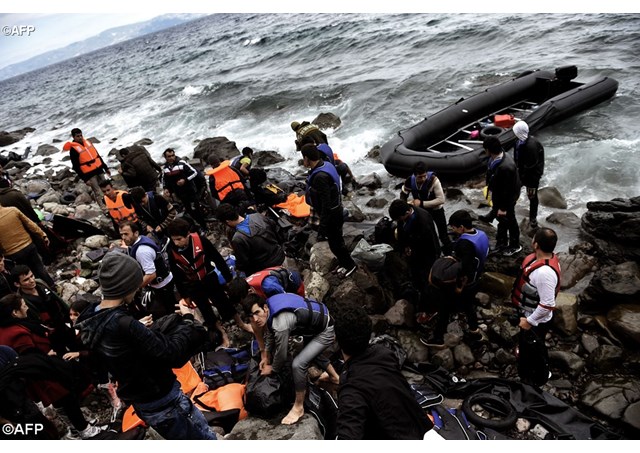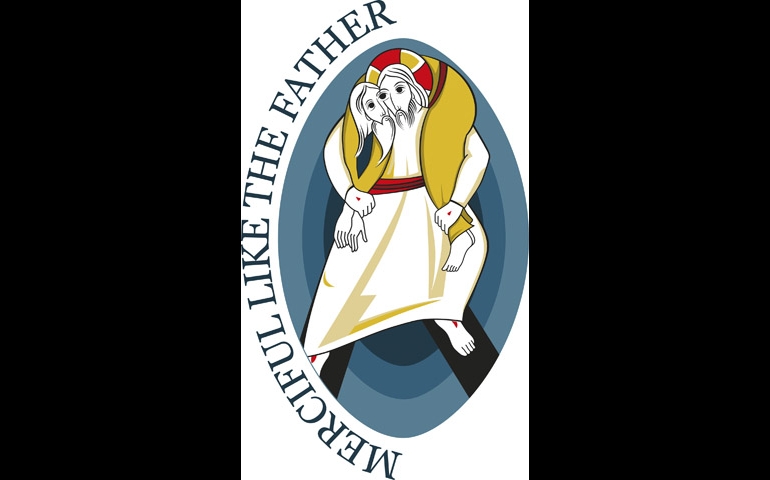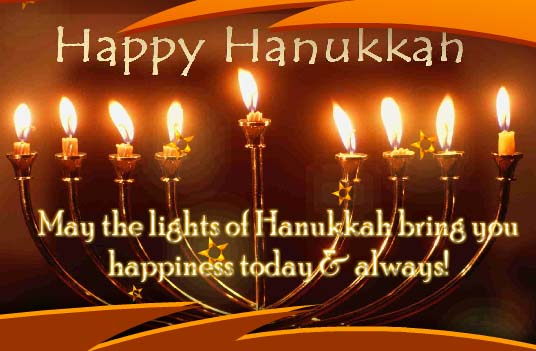World Day of Migrants and Refugees – 18 December

The theme chosen by Pope Francis for 2016 is “Migrants and Refugees Challenge Us. The Response of the Gospel of Mercy.”
“The tragic stories of millions of men and women daily confront the international community as a result of the outbreak of unacceptable humanitarian crises in different parts of the world,” writes Pope Francis.
“Indifference and silence lead to complicity whenever we stand by as people are dying of suffocation, starvation, violence and shipwreck,” he continues. “Whether large or small in scale, these are always tragedies, even when a single human life is lost.”
“The Church stands at the side of all who work to defend each person’s right to live with dignity, first and foremost by exercising the right not to emigrate and to contribute to the development of one’s country of origin. This process should include, from the outset, the need to assist the countries which migrants and refugees leave. (Vatican Radio)
The head of the UN refugee agency, UNHCR, has urged European leaders to set up a « massive » refugee settlement programme. Antonio Guterres was speaking as a new UN report warned that the number of forcibly displaced people worldwide would « far surpass » a record 60 million this year. (Source: BBC News email, December 18, 2015)
Expectation
 In this period of waiting, of e x p e c t a t i o n , the words of Henri Nouwen are very appropriate.
In this period of waiting, of e x p e c t a t i o n , the words of Henri Nouwen are very appropriate.
« Those who think that they have arrived, have lost their way.
Those who think they have reached their goal, have missed it.
An important part of the spiritual life is to keep longing, waiting, hoping, expecting.
A good criticism, a frustrating day, an empty stomach, or tired eyes might help to reawaken our expectation and deepen our prayer:
« Come, Lord Jesus, come. »
Henri Nouwen, The Genesee Journal, p. 113
I’ll quit!…
Autumn lingers on… Summer is long gone and winter is late coming – late, that is, in bringing the beautiful snow-landscapes we recall and enjoy. The days are short and dark, rain is often there, wet, sometimes slippery and always unpleasant. And, if truth be told, at times our thoughts are also unpleasant. Life is not easy and there’s not much to cheer us up.

Have you ever been tempted to send this note to . . . God?!
You smile! But sometimes, we feel like that, don’t we?
We’d like to drop some commitment, forget about some responsibility, give up some demanding task and abandon whatever seems too heavy a load to carry at the moment.
Recently, I came across a poem with much humour and wisdom. Let me share it with you.
« I’ve taught a class for many years;
Borne many burdens – toiled through tears,
But people don’t notice me a bit;
I’m so discouraged – I’ll just quit.
Sometime ago I joined the choir
That many people I might inspire;
But people don’t seem moved a bit
And I wont stand it. I’ll just quit.
I’ve led young people day and night
And sacrificed to lead them right.
But people wont help me out a bit,
And I’m so tired, I think I’ll quit.
Christ’s cause is hindered everywhere
And people are dying in despair.
The reason why? Just think a bit;
The Church is full of people who quit. »
Anonymous
3rd Sunday of Advent, C
You lo ok at this picture, you read the text, you go from one layer to the other and you think to yourself: ‘Something is missing! Where is… JOY?’
ok at this picture, you read the text, you go from one layer to the other and you think to yourself: ‘Something is missing! Where is… JOY?’
Bliss can make us feel heavenly… for a while!
Delight provides a feeling of pleasure in something or someone.
Happiness is a more pervasive, deeper, state leading us to think that life is good and the world a good place to be.
Contentment makes us experience some kind of ease, of gratification, about the situation we find ourselves in.
Satisfaction provides a sensation that things are all right, it calls for some kind of suspension of effort for some time.
But what about JOY? It is very much the theme of this Sunday as we hear the words of the prophet Zephaniah (3:14-18) and the apostle Paul (Ph.4:4-7). Both tell us to « REJOICE », and they stress this message. Paul admits: « I repeat. » What they tell us is to « rejoice in the Lord. »
What does it mean? I wonder: ‘What is asked of me?’ Perhaps the answer lies in the reason why we should rejoice and it is mentioned clearly: « The Lord is near. » So, we are expected to rejoice because we have nothing to fear, the Lord is in our midst, and Zephaniah promises us: « He will renew you with his love. » Nothing less – is it not enough to be filled with joy?
Year of Mercy

VATICAN CITY — Pope Francis pushed open the great bronze doors of St. Peter’s Basilica on Tuesday December 8 to launch his Holy Year of Mercy, declaring that mercy trumps moralizing in his Catholic Church.
Francis stood in prayer on the threshold of the basilica’s Holy Door then walked through it, the first of an estimated 10 million faithful who will pass through over the course of the next year in a rite of pilgrimage dating back centuries.
Celebration of Hanukkah

For our Jewish brothers, eight days of celebration are starting today in honour of the Feast of HANUKKAH, or CHANUKKAH.
It is a celebration of LIGHT in THANKSGIVING for an important event in the life of their people. The event took place long ago for the people of Israel but the memory of it is still kept year after year. Details of what took place are available in the Bible in the first book of Maccabees 4:36-59.
The eight-day celebration in 2023 is from December 7th to 15th.
2nd Sunday of Advent, C
IT’S THE WORLD UPSIDE DOWN!
 You may have been told these words at one time or another.
You may have been told these words at one time or another.
It may have been that you were telling someone about something quite unusual, or unexpected.
You were describing a situation, or an event, that the person listening to you could hardly imagine having happened.
He, or she, spontaneously exclaimed: “But, it’s the world upside down!”
This expression came to my mind as I read the text of the gospel for this 2nd Sunday of ADVENT (Lk.3:1-6).
It is an echo of a text from the prophet Isaiah (40:3-5) where, indeed, everything is turned  upside down:
upside down:
“The mountains brought low, the valleys filled in, the winding ways straightened and the rough roads made smooth.”
But the beginning of the text is saying: “Prepare a way for the Lord, make his paths straight.”
So, it seems that we have something to do with… turning things upside down!
Could it mean that…
Our pride should become a truthful look at ourselves,
our selfishness should be replaced with concern for others,
our dishonesty should be straightened up into honest dealings with people,
and, yes, all our other crooked ways should be transformed into genuine attitudes according to what the Lord expects from us?…
And the change might bring people around us to whisper: ‘Incredible, unbelievable! It’s the world upside down!’
They would be truly astonished at the Spirit obviously at work – if only we allow him to fashion us into the people we are meant to be…
Advent wreath

In Catholic churches, the most popular colours for the Advent candles are violet and rose, corresponding with the colors of the liturgical vestments for the Sundays of Advent. In the Western church, Violet is the historic liturgical color for three of the four Sundays of Advent: Violet is the traditional color of penitential seasons. Rose is the color for the Third Sunday of Advent, known as Gaudete Sunday from the Latin word meaning « to rejoice »—also from the first line of the traditional entrance prayer for the Mass of the third Sunday of Advent.
In Protestant churches it is more common to use four red candles (reflecting their traditional use in Christmas decorations) because rose vestments and decorations are not commonly used in Protestant churches. Blue is also a popular alternative color for both Advent vestments and Advent candles, especially in some Anglican and Lutheran churches. This is in keeping with the liturgical seasons; blue means hope and waiting, which aligns with the seasonal meaning of Advent.
Other variations of the Advent wreath add a white candle in the centre to symbolize Christmas, sometimes known as the « Christ candle. » It can be lit on Christmas Eve or Christmas Day. White is the traditional festal colour in the Western church.
In some Protestant churches, the candles represent hope, peace, love and joy. Often the third candle, representing love, is a different color than the other three, representing the importance of love as the greatest of all the qualities that abide eternally. (Wikipedia)
International Day for the Abolition of Slavery – December 2
 The United Nations is committed to fighting against slavery and considers bonded labour, forced labour, the worst forms of child labour and trafficking people as modern forms of slavery.
The United Nations is committed to fighting against slavery and considers bonded labour, forced labour, the worst forms of child labour and trafficking people as modern forms of slavery.
Some sources say that more than one million children are trafficked each year for cheap labour or sexual exploitation.
These types of slavery are global problems and go against article four of the Universal Declaration of Human Rights, which states that “no one shall be held in slavery or servitude; slavery and the slave trade shall be prohibited in all their forms”.


